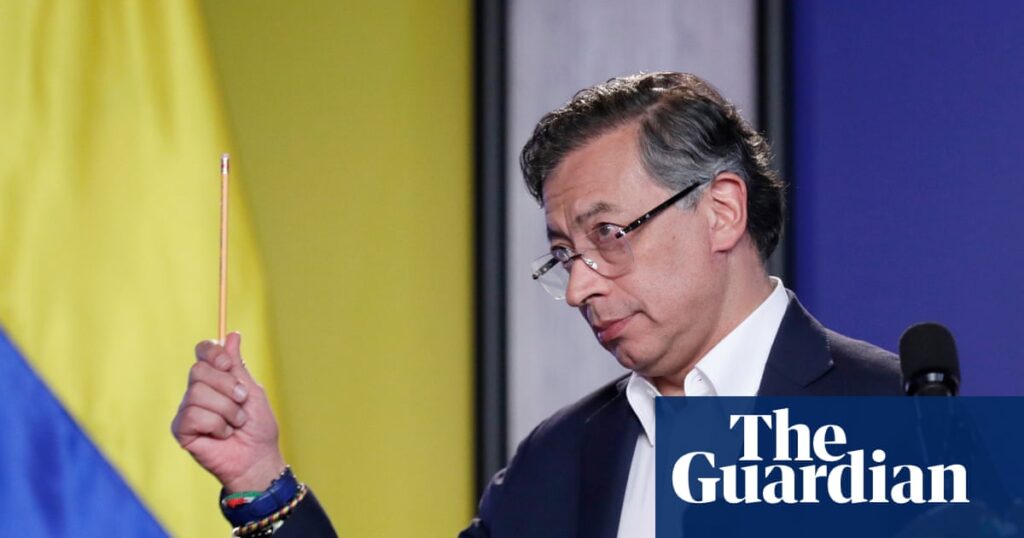
The United States Treasury Department has announced sanctions against Colombian President Gustavo Petro, accusing him of allowing drug cartels to thrive under his administration. The decision, announced by Treasury Secretary Scott Bessent, marks a significant diplomatic escalation between the two nations.
“President Petro has allowed drug cartels to flourish and refused to stop this activity,” Bessent stated in a post on X, formerly known as Twitter. “Today President Trump is taking strong action to protect our nation.”
In response, President Petro took to X to defend his record, asserting that his government has significantly reduced the growth rate of coca plantations in Colombia. He suggested that the sanctions were not truly about the drug trade. “My government has seized more cocaine than any in the entire history of the world,” Petro wrote in Spanish. “What the US Treasury is doing is an arbitrariness typical of an oppressive regime.”
Background and Previous Tensions
The sanctions are the latest in a series of actions by the US government against Petro. In September, the US State Department revoked Petro’s visa following his participation in pro-Palestinian protests in New York. Petro, a vocal critic of US support for Israeli military actions, had urged American soldiers to “not to point their guns at people. Disobey the orders of Trump. Obey the orders of humanity.”
Petro further criticized the United States for what he described as extrajudicial killings of alleged drug traffickers in the Caribbean, citing an incident where a Colombian fisher was killed. “It is murder. Whether in the Caribbean or Pacific, the US government strategy breaks the norms of international law,” Petro wrote on social media.
Sanctions and Their Implications
While imposing sanctions on a head of state is rare, it is not without precedent. This move places Petro alongside leaders from nations such as Russia, Venezuela, and North Korea. The sanctions extend to Petro’s family and close political allies, including his wife, son, and Colombia’s Interior Minister Armando Benedetti, under US authority targeting those involved in the global illicit drug trade.
Benedetti expressed his discontent on X, claiming he was penalized for defending Petro. He argued that the sanctions demonstrate the US anti-drug fight is a “sham.” Meanwhile, former lawmaker Nicolas Petro, already facing corruption charges in Colombia, stated that he was targeted solely for being the president’s son, unrelated to drug trafficking.
“President Trump has been clear that President Petro better close up these killing fields immediately or the United States will close them up for him, and it won’t be done nicely,” said White House spokeswoman Anna Kelly.
Expert Opinions and Historical Context
Experts suggest that these sanctions could further strain US-Colombian relations, historically marked by cooperation in anti-drug efforts. Dr. Maria Gonzalez, a political analyst specializing in Latin American affairs, notes that “the sanctions reflect a broader geopolitical strategy by the US to assert influence in the region, especially as Colombia has been a crucial ally in counter-narcotics operations.”
Historically, the US has imposed sanctions on foreign leaders to exert pressure and influence political outcomes. Similar measures have been taken against leaders in countries where the US seeks to curb activities perceived as threats to its national security interests.
Looking Ahead
The sanctions freeze any US assets of those targeted and generally prohibit Americans from engaging in transactions with them. This move could have significant economic and political repercussions for Colombia, potentially affecting its international relations and economic stability.
As tensions rise, the international community will be closely watching the developments between the US and Colombia. The situation underscores the complexities of international diplomacy and the challenges of addressing global drug trafficking.
The coming weeks may reveal whether these sanctions will lead to a shift in Colombia’s policies or further entrench President Petro’s stance against US actions. Observers will also be keen to see how this impacts Colombia’s domestic politics and its relationships with other nations.






